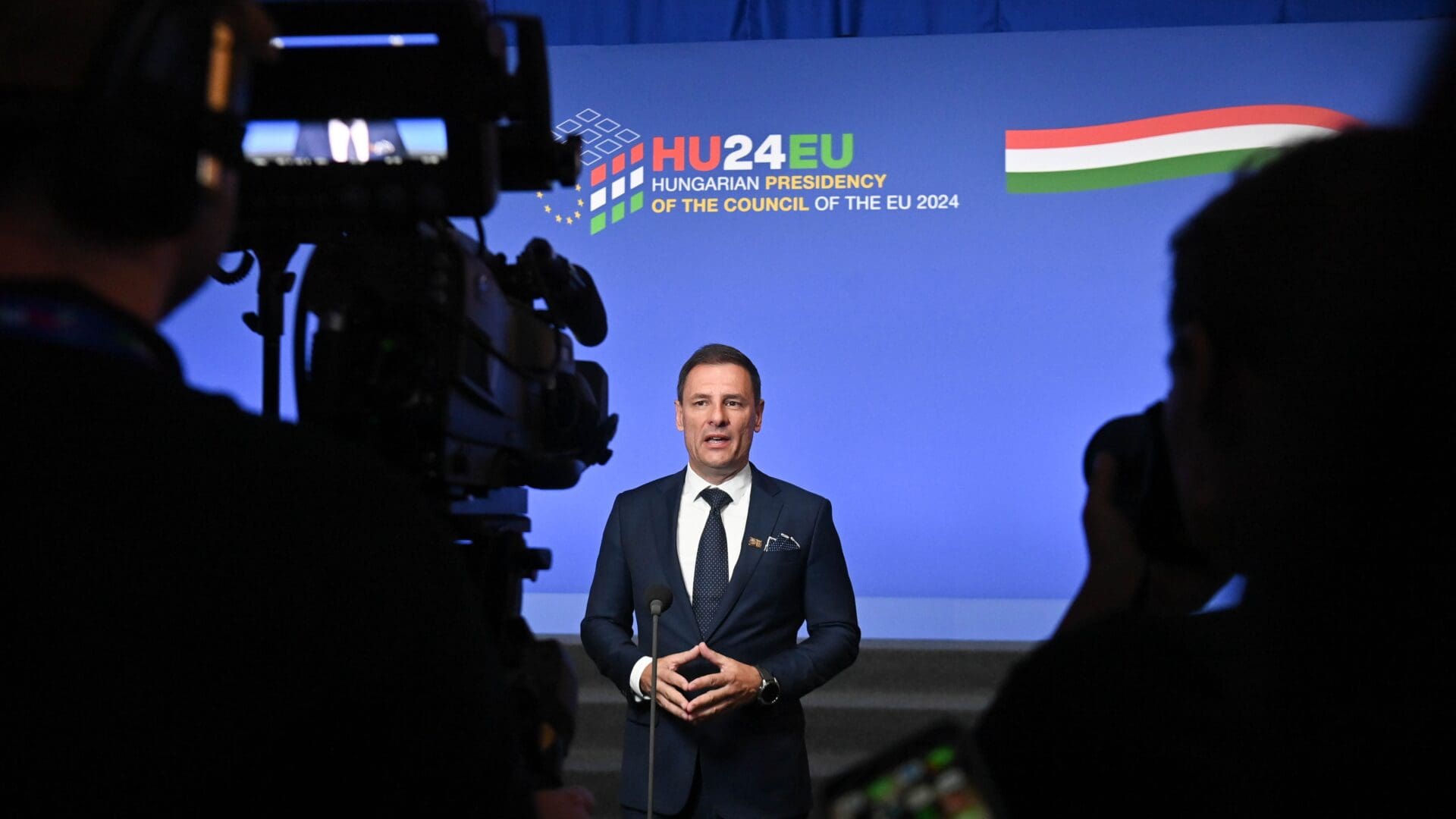The legal competitiveness of the European Union was the central theme at the informal council meeting of EU justice ministers held in Budapest on Tuesday, as highlighted by Minister of Justice Bence Tuzson during a subsequent press conference.
Bence Tuzson emphasized that they had a successful working day, one of the primary objectives of which was to place on the EU’s agenda real issues that could positively influence its long-term functioning. One of the most crucial tasks is to strengthen the union’s competitiveness, which might seem like an economic issue but also necessitates focusing on the EU’s legal competitiveness. This means that the union’s laws must serve and underpin competitiveness, according to the minister. ‘Europe needs to be invigorated,’ he said, not just from an economic perspective but also in terms of legal matters. During the discussions, they identified several areas that could bolster competitiveness within the European Union: the simplification of the legislative process and regulations, as well as increasing their transparency.
The majority of the EU countries present agreed with these ideas, and creative work has begun, Tuzson Bence reported. He stated that the meeting also
explored the application of artificial intelligence in the legal field.
They reviewed best practices on how artificial intelligence can be employed in judicial practices and legal services to enhance the efficiency of law enforcement, citing the anonymization of documents as an example. The minister noted that while artificial intelligence can provide substantial assistance, decisions must always be made by humans. He also stressed that while AI can contribute to the development of fundamental rights, it is crucial that it does not restrict their realization.
Another potential use of artificial intelligence is in reviewing legislation, as the increasing number of laws in the union could lead to legal opacity, hence AI could aid in navigating these laws, Tuzson explained. He noted that a project has already started in Hungary, where artificial intelligence helps navigate legislation, showing which law to apply and what the legal practice is in case of a legal problem.
Tuzson Bence also mentioned that strategic guidelines were discussed, focusing on the main priorities of European legislation in the upcoming period. They agreed that competitiveness, the transparency of the legal system, and the realization of fundamental rights should be regarded as the most important issues, the minister added.
Related articles:








